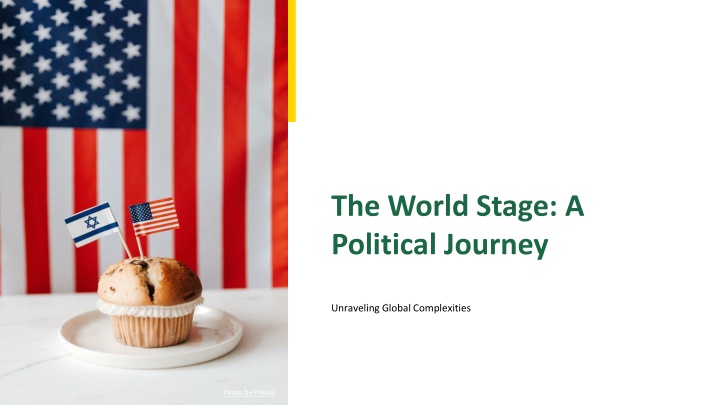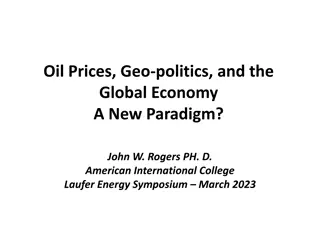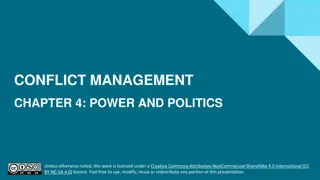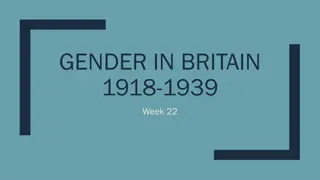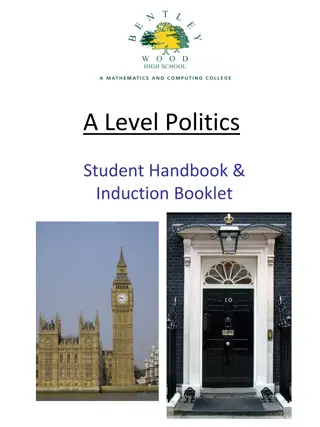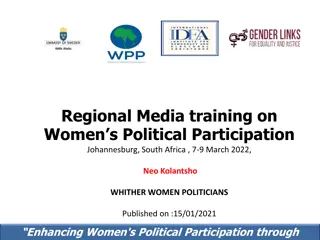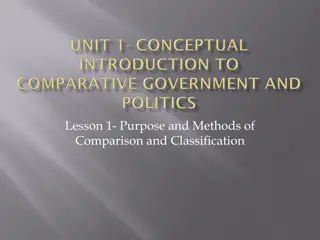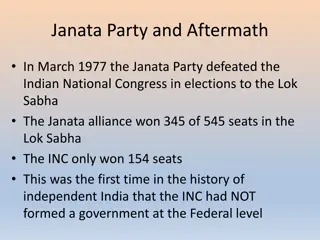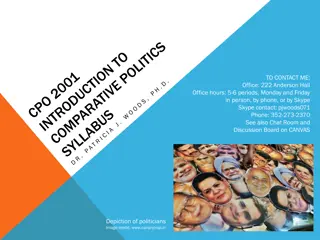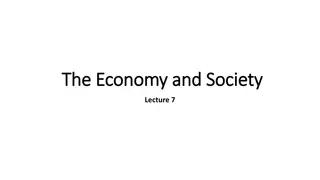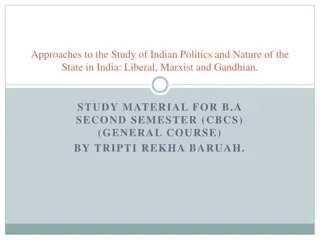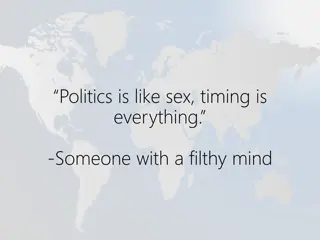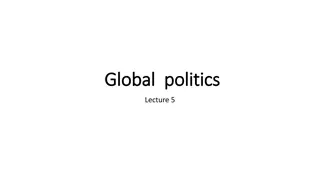Global Politics: Unraveling Complexities and Evolution
A journey through global politics, exploring intricate relationships, power dynamics, and emerging players on the world stage. Dive into the evolution of international relations and understand the implications of power shifts, all while navigating the challenges in global governance and envisioning future trends. Stay informed and engage as a global citizen in an interconnected world.
Download Presentation

Please find below an Image/Link to download the presentation.
The content on the website is provided AS IS for your information and personal use only. It may not be sold, licensed, or shared on other websites without obtaining consent from the author.If you encounter any issues during the download, it is possible that the publisher has removed the file from their server.
You are allowed to download the files provided on this website for personal or commercial use, subject to the condition that they are used lawfully. All files are the property of their respective owners.
The content on the website is provided AS IS for your information and personal use only. It may not be sold, licensed, or shared on other websites without obtaining consent from the author.
E N D
Presentation Transcript
The World Stage: A Political Journey Unraveling Global Complexities Photo by Pexels
01 Understanding Global Politics Table of Contents 02 The Evolution of International Relations 03 Power Shifts and Their Implications 04 Emerging Powers on the Rise 05 Influence of Globalization 06 Technological Advances and Politics 07 Cultural Diplomacy's Role 08 Challenges in Global Governance 09 Future Trends in Global Politics 10 Thank You!
1 Understanding Global Politics A complex tapestry Global politics is a dynamic field, weaving together diverse cultures, histories, and ideologies into a complex framework. It impacts everyone worldwide. The interactions among nations shape economies, security, and social structures, creating a ripple effect across borders and influencing daily lives. Recognizing this complexity allows us to navigate cultural nuances and political landscapes effectively, fostering better international relationships. Ultimately, understanding global politics is key to thriving in our interconnected world, highlighting the importance of Photo by Pexels informed global citizens.
2 The Evolution of International Relations A historical perspective International relations have transformed significantly over centuries, influenced by wars, treaties, and diplomatic initiatives that have reshapedboundaries and alliances. Studying these transformations helps us understand current political climates and the motivations driving nations today. Crucial events like the Cold War and the formation of the United Nations mark significant milestones in this historical narrative. Engaging with this history provides context for contemporary issues, fostering effective dialogue and decision-making in global affairs. Photo by Pexels
3 Power Shifts and Their Implications A changing landscape Power is never static; it shifts continuously, reflecting changes in military, economic, and political dominance globally. Emerging powers like India and Brazil are reshaping the landscape, challenging traditional power structures and influencing global governance. Understanding these shifts is vital for predicting future trends and aligning internationalstrategies with emergent realities. Recognizing power dynamics prepares us for potential conflicts and alliances, enhancing global cooperation and stability. Photo by Pexels
4 Emerging Powers on the Rise New global players Countries like China, India, and others are becoming influential players on the world stage, contributing economically and politically. Their rise signifies a multipolar world where diverse voices contribute to global decisions, reshaping international norms and practices. This shift is crucial; it demands adaptive strategies from traditional powers to collaborate effectively with emerging nations. Embracing this change can lead to innovative partnerships and cross-cultural initiatives, benefitting global communities. Photo by Pexels
5 Influence of Globalization An interconnected world Globalization affects politics, economies, and societies, breaking down barriers and facilitating interactions across borders and cultures. This interconnectedness allows for shared challenges such as climate change, trade, and security that require cooperation among nations. Understanding globalization helps us appreciate the importance of international partnerships in tackling these global issues effectively. Navigating globalization requires open-mindedness and adaptability, fostering a shared commitment to a sustainable Photo by Pexels future.
6 Technological Advances and Politics The digital age Technology plays a pivotal role in shaping global politics by enhancing communication, information sharing, and real-time decision-making. Social media and digital platforms empower citizens, influence public opinion, and can even alter political landscapes. Grasping this connection between technology and politics is key to understanding contemporary political movements and activism. Leveraging technology responsibly can enhance democratic engagement and facilitate transparent governance. Photo by Pexels
7 Cultural Diplomacy's Role Soft power in action Cultural diplomacy utilizes cultural exchanges and artistic expressions to foster mutual understanding and open dialogues between nations. By promoting cultural ties, nations can build trust, reduce tensions, and enhance global cooperation regardless of political differences. This approach highlights the importance of soft power in international relations, providing an alternative to traditional hard power tactics. Engaging in cultural diplomacy enriches societies and paves the way for peaceful conflict resolution and collaboration. Photo by Pexels
8 Challenges in Global Governance Navigating hurdles Global governance faces numerous challenges including inequality, terrorism, and climate change, demanding innovative solutions and collective action. These challenges highlight the importance of international cooperation and the need for effective multilateral institutions to address them. Navigating these complexities requires collaboration among nations to create inclusive policies and sustainable practices. Engaging with these challenges can foster resilience and adaptability in a rapidlychanging political landscape. Photo by Pexels
9 Future Trends in Global Politics Looking ahead As global politics evolves, trends such as digital diplomacy, climate action, and multipolarity will shape international relations significantly. Leaders need to stay informed and adaptable to harness these trends for sustainable development and global stability. Preparing for future shifts involves educating citizens and fostering global awareness, ensuring informed participation in political processes. Understanding these trends empowers individuals to contribute meaningfully to a more peaceful and cooperative world. Photo by Pexels
10 Thank You! Your attention matters Thank you for exploring the complexities of global politics with us. Your engagement is vital in fostering understanding and collaboration. As global citizens, our awareness shapes the future of international relations and global governance, paving the way for positive change. Let s commit to staying informed and engaged in these crucial discussions, contributing to a more interconnected and peaceful world. Together, we can make a difference in our global community. Thank you once again for your attention! Photo by Pexels
